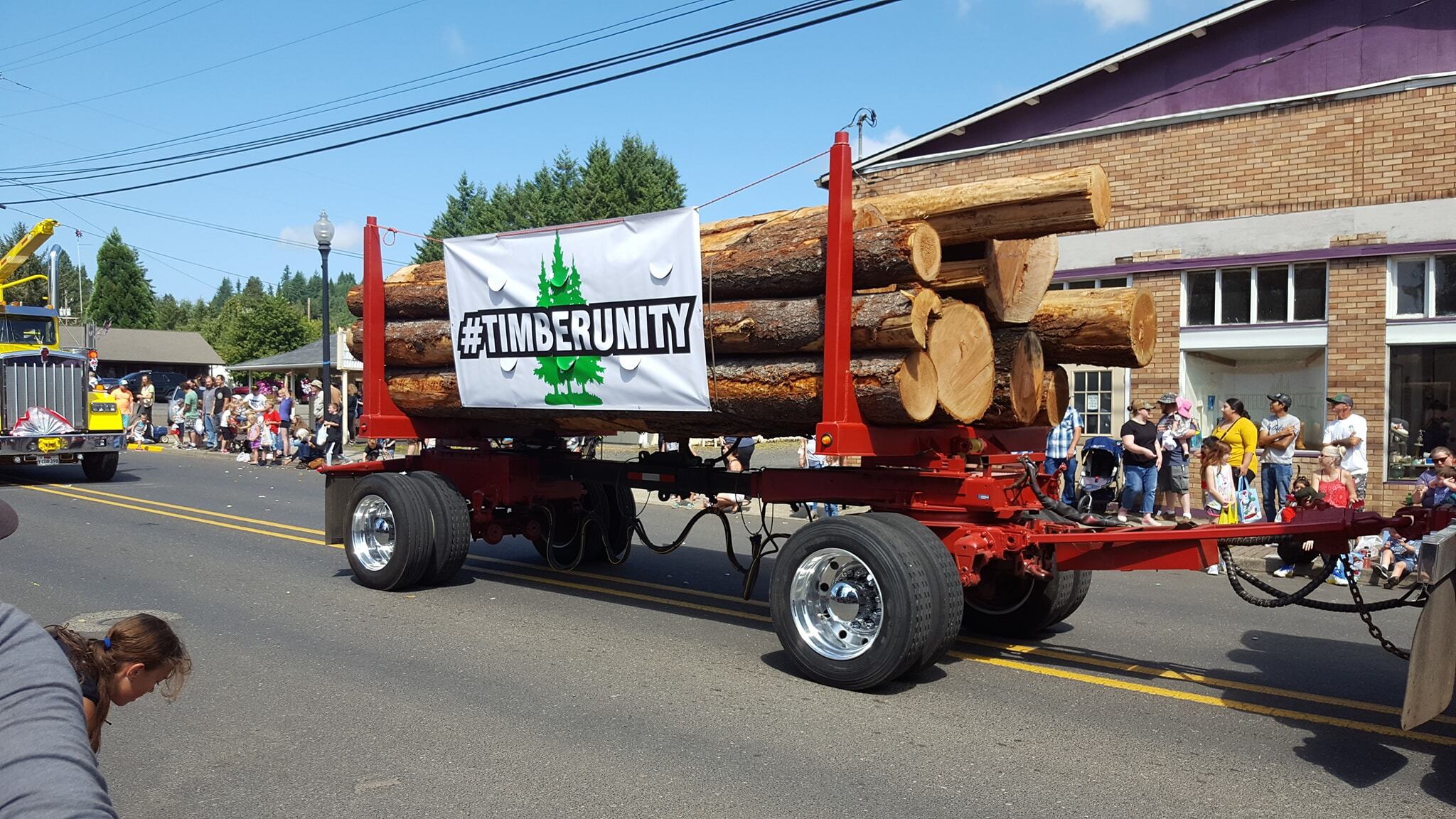The loggers were everywhere. At three June rallies, streams of honking timber trucks converged on Salem as burly lumberjacks and truckers swarmed the Capitol in hard hats and suspenders.
Oregon's wood products industry provided the outstanding visual of the 2019 legislative session. They got what they wanted: the death of House Bill 2020, the carbon-reduction bill known as "cap and trade."
In a state where Democrats hold a voter registration advantage of 10 percentage points over Republicans and enjoy super-majorities in both legislative chambers, the show of muscle by a grassroots group called "Timber Unity" provided a rare political highlight for mostly Republican rural Oregon.
"It was a win," says Eric Fruits, an economist and former Multnomah County GOP chairman. "I think Timber Unity was as important to killing the bill as the GOP senators' walkout."
But Timber Unity is already divided. The corpse of cap and trade was still warm when a dispute erupted over the leadership and direction of the loggers' rebellion.
The rupture isn't about political differences. Instead, it shows that sophisticated metro-area political operatives see the groundswell of angry loggers as an opportunity to wield greater influence and revitalize the Oregon GOP.
On one side: Loren Hutnick, 51, one of the log truck drivers who was an early member of the movement, and his ally and spokeswoman, Breeauna Sagdal. They're pitted against a more politically experienced group led by former state Rep. Julie Parrish (R-West Linn) and backed by Stimson Lumber CEO Andrew Miller.
After the first rally, held June 12, Sagdal, 35, says she was on a conference call with Parrish and others about how to build the movement's grassroots momentum, but she says Parrish took over and had soon helped Miller form a political action committee that excluded Sagdal and Hutnick.
Parrish disputes she crashed the party, saying she reached out to the movement's co-founders soon after seeing the initial #Timber Unity Facebook posts.
In late June, Parrish took over as a moderator of that nascent Facebook group, which has grown to 53,000 members who are engaging in traditional political activities, such as filing election complaints and taking positions on ballot measures.
The process has left Sagdal and Hutnick feeling as if Parrish took away the keys to their log trucks.
"'Hijacked' is the word we use," Sagdal says.

The rise of Timber Unity electrified Salem, and caught the attention of politicians from here to Washington, D.C. (Last month, President Donald Trump invited two members of the Oregon movement to the White House to discuss environmental policy.)
It also quickly escalated to legal threats and filings. The hardball tactics reflect the political and financial potential of an organic political movement, the likes of which rural Oregon has not seen for a long while.
Parrish made the first legal move, directing former state Rep. Shawn Lindsay (R-Hillsboro), a lawyer, to file an application for a federal trademark for #TimberUnity on June 28.
Then, on July 8, Hutnick and Sagdal registered the names Timber Unity and Timber Unity Inc. with the Oregon secretary of state's Corporation Division. On July 10, Lindsay sent Hutnick and Sagdal's attorney a letter demanding they immediately cease using any version of the name Timber Unity, or "we will have no alternative but to take all legal measures against your client to protect
TimberUnity's valuable proprietary rights." On July 24, Parrish registered the name Timber Unity Association with the state.
So who speaks for Timber Unity?
Hutnick says his group represents the real grassroots movement.
"We're out for the greater good of Oregon, not to benefit ourselves," he says. "I think the other group is trying to make this thing a cash cow." Hutnick notes that Parrish is selling lots of $32 hats, $30 bags of coffee (2 pounds), and $22 orange T-shirts—dyed the hue of forest safety gear.
Parrish, 45, who lost her seat last year after four terms in the House, says Hutnick is off base. "Like with any effort, there are sometimes people who want to take credit which isn't theirs to take," she says. "[Hutnick] was not at the first meetings with lawmakers, he didn't start the [Facebook] page."
After intense behind-the-scenes negotiations, Hutnick and Sagdal, who is also a leading voice in the movement, urging parents to opt their children out of childhood vaccinations, say they've decided to concede. They had begun to form a 501(c)(4) nonprofit called Timber Unity, but will now cede the name to Parrish's group in what they are calling a "rebranding."
Jim Pasero, a veteran Republican political consultant, says nobody should be surprised to see such internecine squabbling. "Oregon Republicans are like Afghan tribal chiefs who go out and shoot their guns in the air," Pasero says. "There's no structure. There's no discipline."
But the seizing of the movement by more sophisticated operators hints at the opportunity angry loggers present for Oregon Republicans.
As a movement, Timber Unity grew out of a fear that climate legislation would demolish logging and cost truckers a bundle. It still might. In any case, the show of force in Salem is unlikely to halt a decadeslong trend.
As a share of Oregon's economy, the timber industry is in long-term decline. In 1978, timber jobs made up more than 10 percent of private sector jobs in Oregon. Today, state figures show, they account for less than 2 percent.
The opportunity, say Pasero and others, is for the Timber Unity movement to inject energy in the state's moribund Republican Party, which hasn't won a governor's race since 1982.
"Kate Brown and the supermajority and every special interest group out there looking for a carve-out or a sweetheart deal woke up a sleeping giant in Oregon," Parrish says. "That giant is really pissed off. Lawmakers cannot keep trying to legislate people out of jobs and expect them to take it lightly."

